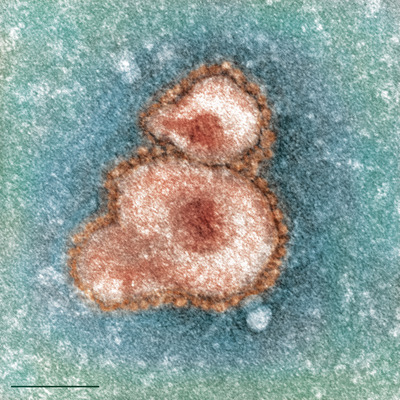Partnership to prepare for the next pandemic
A $20 million research partnership between Australia, Singapore and the US aims to prepare the world for its next pandemic.
CSIRO Biosecurity Flagship Director Dr Gary Fitt said that given “70% of new diseases in people have originated in animals”, there is a need to ramp up research into viruses that spread from animals to humans.
Furthermore, he noted, the constant movements of people and trade throughout the world means there is a greater risk of infection, despite a “strong biosecurity system backed by world-class science”.
Examples of new infectious diseases include:
- A SARS-like virus which has emerged from the Middle East (known as Middle East Respiratory Syndrome or MERS) and spread to the UK, Germany, France, Italy and Tunisia. It has killed 45 of 82 people infected since September 2012.
- A new strain of highly pathogenic bird flu (H7N9) in China, which is killing people instead of chickens. It is unknown how it spreads and is doing so without being detected.

In light of this, CSIRO has signed a relationship agreement with Duke-NUS (an alliance between Duke University in North Carolina and the National University of Singapore) to form the International Collaborative Centre for One Health. Dr Linfa Wang, CSIRO Science Leader and Director of the Program in Emerging Infectious Diseases at Duke-NUS, explained that the centre’s approach to the threats will be a new one, integrating medical, veterinary, ecological and environmental research.
Given the pathogens’ jumps from animals to humans, “the One Health approach is really about working together … from wildlife to livestock and to human health”, said Dr Wang.
“We are combining CSIRO’s world-leading bat virology research with Duke-NUS medical expertise in the development of new and more effective methods for the discovery, treatment, prevention and control of new and emerging diseases in people,” he added.
The Duke-NUS team is currently working to develop new tests for early and rapid detection of emerging infectious diseases such as Hendra virus and coronaviruses. CSIRO scientists with expertise in bat virology will then test and validate these new platforms at the Australian Animal Health Laboratory, said to be the world’s most advanced high containment facility, located in Geelong.
Liquid catalyst could transform chemical manufacturing
A major breakthrough in liquid catalysis is transforming how essential products are made, making...
How light helps plants survive in harsh environments
Researchers from National Taiwan University have uncovered how light stabilises a key...
SKA-Low's first image of the universe released
The image is an indication of the scientific revelations that will be possible with the...




